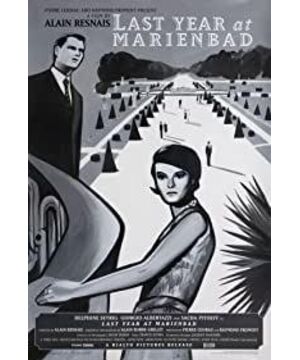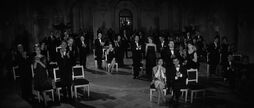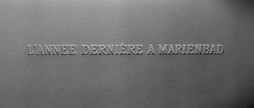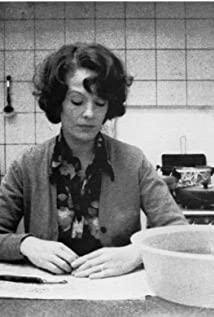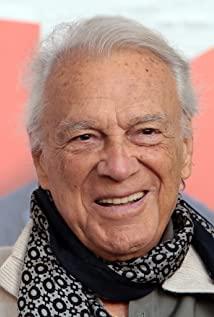A group of film directors on the left bank of the Seine in Paris are mostly called "left bank" by critics. Some of them are famous French modernist novelists, and many of them came from the "new novel school" to the film side. Therefore, the "left bank" film is also called "writer's film" in another sense. Relatively speaking, we also come up with the concept of "author's film", that is, to freely express the personal-director's style characteristics, and this style and characteristics, like other arts, should be permeated in his series of films and become the director's unique characteristics. logo. Judging from the characteristics of the composition and combination of the two factions, many directors of the author's films are under the influence of the "Film Manual" edited by Bazin, and a group of young editors gathered together. The film is dedicated to Andre Bazin. The extensive use of long shots in the film, especially the last classic long shot, is a direct tribute to Bazin’s film theory. They are also keen to pay tribute to classic directors, such as Truffaut’s direct vision. Hitchcock is his film director idol, he called Hitchcock "a film artist who really understands film", and the "subjective director method" created by Hitchcock is constantly used in the film. In Exhausted, the protagonist speaks freely to the camera while driving away, breaking the fourth wall of the film. These writers all took their own new paths and formed their own characteristics based on the masterpieces and styles of their predecessors. In comparison, a writer's film is a group of modernist writers who share certain interests. Like the author's films, they have a very core cohesion, often a very old friendship between them, that existed long before they entered the film industry. They are geographically close and artistically supportive, and they belong to a social group that can be roughly called the "intellectual" world. Literary scripts usually created for movies, the main activity area is different from the film criticism area of the author's film, they are closer to the film text, and the artistic style tends to be deeper, which is a cinematic exploration on the road of literary psychology. Writer's films have similar characteristics to author's films in opposing traditional film concepts, film language, structure, deliberate innovation, and pursuit of personal style, so their works are often classified as "New Wave". However, in its own right, there are still too many differences. As far as artistic content is concerned, one focuses on the real life of the moment, and the other focuses on the illusory mental illusion of characters. In my opinion, the new waveism represented by the author's films is often somewhat similar to Italian neorealism. In "The Bicycle Stealer", the loss, confusion and helplessness behind the lost car are used to express World War II. The tragic situation of post-Italian society; and "The Four Hundred Blows" is also from childhood Starting from things, the young Antoine was originally a clear and gentle boy. Due to various factors such as family misfortune and school violence, he had to be shadowed by the adult world, and he had to brutally go to the labor camp, to the unknowable confusion. destiny. Like Neorealism, they absorbed Bazin's point of view, believing that "movie is an asymptote of reality", and perfectly integrated the misfortune and sadness of life itself and the feelings of their own upbringing into their works. It is the exact opposite of the intense dramatic conflict of Hollywood movies, which pursues non-story and non-plot, and replaces dramatic and intense conflicts with trivial fragments that will actually happen in life. Moreover, the protagonist of the movie is often a child like Antoine, a decadent youth like Michelle, a crazy woman like Catherine... The audience can often empathize with the protagonist of the movie and project themselves into it. A brief release of confused and painful emotions. In this regard, it is difficult for the audience to empathize with the author's film. The content of the film is often unintelligible, and it seems to be far away from reality. But there is another advantage, once you get in there is a lot of staying power. Similar to the article "Spots on the Wall" represented by Woolf, our thoughts can wander illusoryly with the film, but it is difficult to reach the center of the director's expression exactly. The film "Last Year in Marienbad" is known as a real stream of consciousness work. The script is so de-plotted and non-story-based. At the beginning of the film, there are a lot of raving narrations, and the characters have indifferent expressions and rigidity. Body movements, virtual and real jumbles, and the voice-over lines are like a maze that is not only unhelpful, but dizzying and scary. At the end, it is difficult for us to be persuaded by the plot. A man uses words to confuse an adult young woman, making her believe in a one-year contract that does not exist and run away. "Hiroshima Love" is fairly approachable, at least it's a love story that the public loves to see and hear. Although the story of the unethical couple's affair is a bit cliché, under the test of the fiery passion, we also struggled with it, and the magnified inner activity drawn. In this regard, they do not pay attention to the "real world", but pay attention to the ups and downs and struggles of the characters. The fantasy spiritual utopia in their hearts is what they want to pay attention to. Therefore, memory and forgetting are the key words that connect their texts. They seek inspiration from the aftermath of war, the threat of the atomic bomb, and the absurdity of the world. In the spiritual world above, watching movies requires a higher threshold, but In the end, the content that can be experienced is also richer. As far as artistic expression is concerned, "Author's Film" prefers long shots and depth-of-field shots, and mainly follows Bazin's theory of "Mischief", which is contrary to montage theory in almost all aspects. In the movie "Ancestors and Zhans", all of them are shot in real scenes, which are completely different from the later painted virtual scenery of German Expressionism, and also different from the psychological fictional scenery of the left bank's dream babble, which completely reproduces the current time and space. Even in the face of huge emotional choices, the heroine's mad thirst for attention, and the desperate struggle of the two male protagonists do not make people play or disgust, because everything is so simple and true. In the first-person street shooting at the beginning of "Four Hundred Downs", the characters are eager to express their hearts, and their emotions are rendered very natural, showing the daze of young people. The protagonists of the crime in "Exhausted" and "Outlaws" are either crazy or wild, the one minute silence of the protagonists sitting at the table, the Madison dance of three people in the cafe, and the inability of Indian birds. Stop traveling... It is a poetic expression on the background of life, which allows the audience to be conquered by emotions from the heart. It has become a classic in film history, and has been paid tribute by Wong Kar-wai, Quentin and others. Of course, in addition to the natural editing, "Exhausted" also tried to use the jump cut method, which is also a sudden performance of the director's personality stylization. In front of the protagonist sitting in the car, the scene of jumping out of the car to rob the car suddenly flashed, and then flashed back to the scene of getting off the car, perhaps because of the jerky technique, which took time for the viewer to digest. In any case, this inheritance and breakthrough is the manifestation of the director's personality and point of view. In contrast, the editing techniques required by the author’s films are more mature and rich. Unlike the New Wave’s advocacy of improvisation, they pay more attention to fine-tuning in expression techniques, especially artistic skills, which have become an important part of expression. Some people joked that 70% of the value of films like "Last Year in Marienbad" comes from editing effects, so behind the mysteries is the confusion between reality and virtuality. The marionette has become a puppet for expressing needs. Reality is like the answer to a mystery. It is difficult to see through it at a glance. Just like the hero deceives the heroine, the audience is deceived by the camera and finally has to accept it completely. When the male protagonist told the female protagonist about the meeting scene a year ago, he used longer and longer flashbacks to show the female protagonist's continuous psychological acceptance. Finally, the female protagonist even took the initiative to speak, describing the "mirror hanging on the cabinet". "The private meeting room. All mise-en-scene in the film is deceptive, except for the fact that the camera is shot. "Love of Hiroshima" is even more intertwined with the first love and the male lead. The two people gradually merged from being distinct. The filmmaker The change in scale, the interweaving of the past and the present, is like a giant labyrinth. This is in line with the characteristics of literary writers who love word games, and it is also the externalization of their complex spiritual world.
View more about Last Year at Marienbad reviews


